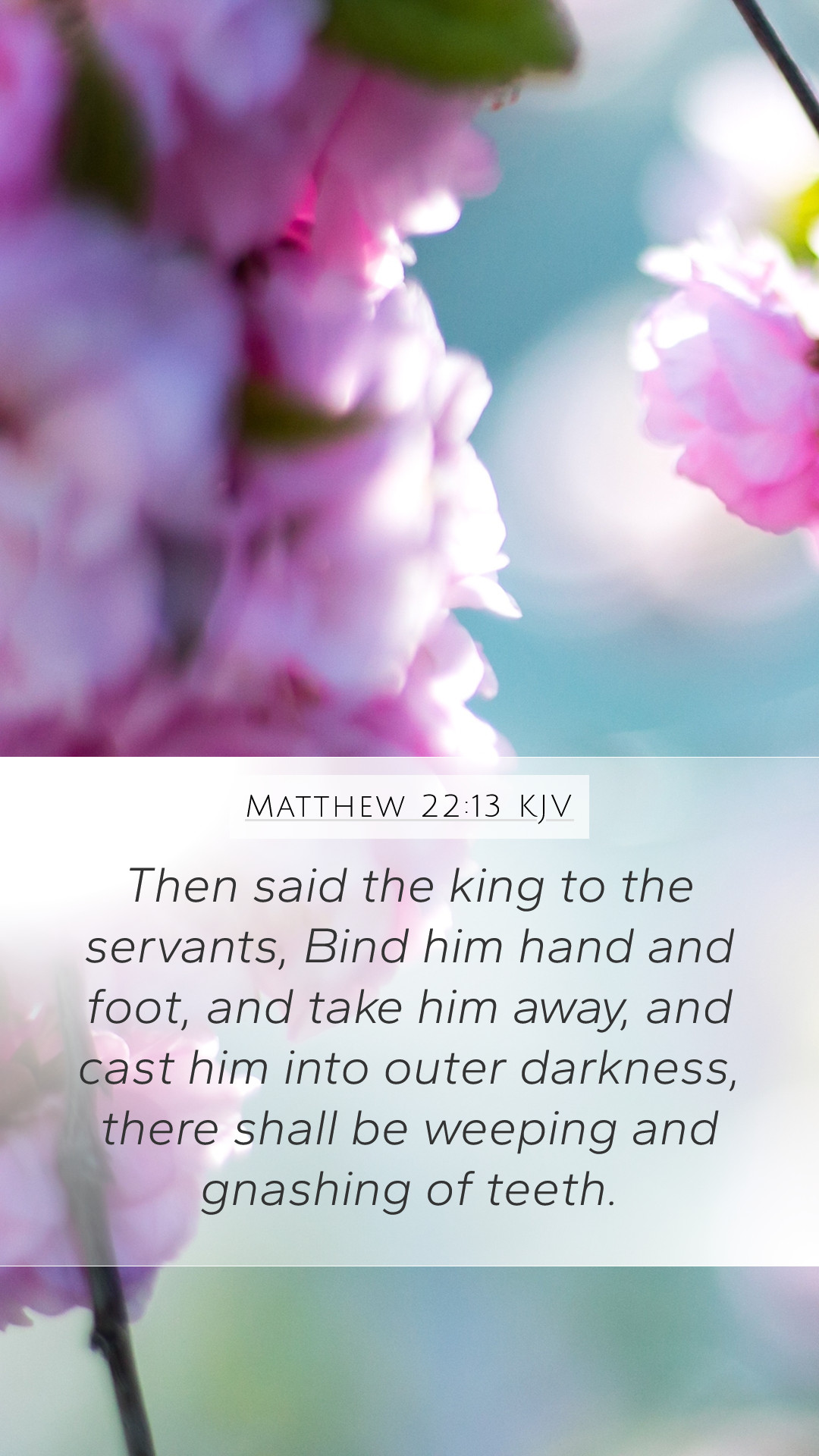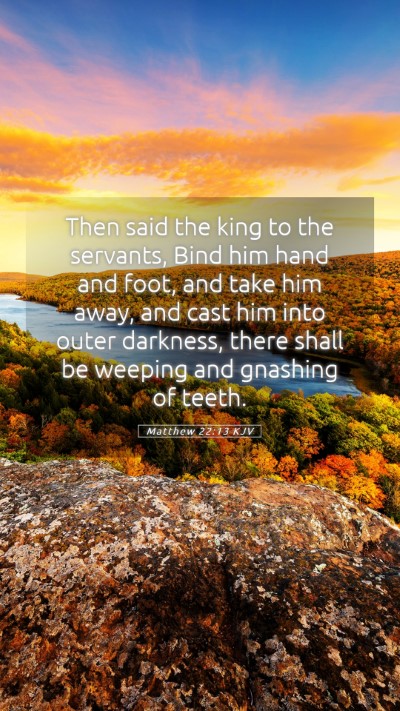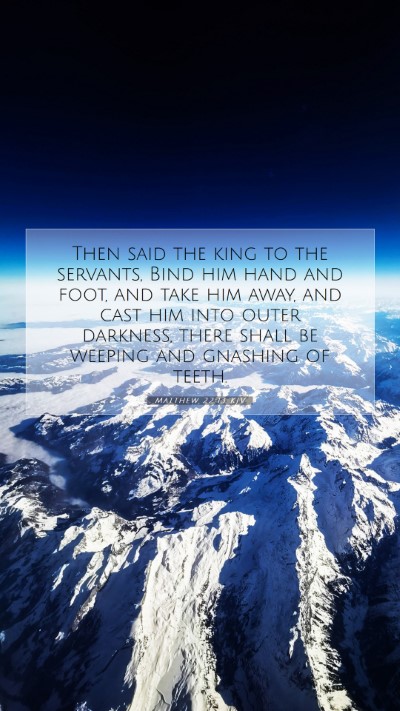Bible Verse Meaning: Matthew 22:13
Verse: "Then said the king to the servants, Bind him hand and foot, and take him away, and cast him into outer darkness; there shall be weeping and gnashing of teeth." (Matthew 22:13, KJV)
Overview of the Passage
This verse forms a part of the Parable of the Wedding Feast, where the king represents God and the guests symbolize those invited to partake in His Kingdom. The harsh treatment of the guest without a wedding garment signifies the consequences of rejecting God’s invitation with a lifestyle unworthy of the gospel. This passage illustrates the seriousness of the call to righteousness and preparation for divine fellowship.
Bible Verse Interpretations
- Matthew Henry: Henry emphasizes the grace of God in inviting all to His feast. However, he cautions against taking salvation lightly; the king’s judgment is a reminder that one must be suitably prepared to enter Christ’s Kingdom.
- Albert Barnes: Barnes points out that being cast into outer darkness represents eternal separation from God. The phrase "weeping and gnashing of teeth" symbolizes regret and despair for those who have missed the opportunity for salvation.
- Adam Clarke: Clarke suggests that the wedding garment indicates the righteousness of Christ. He interprets the refusal to wear it as a denial of God’s grace, illustrating the necessity of being clothed in Christ’s righteousness to enter the Kingdom.
Importance of the Wedding Garment
The image of the wedding garment is crucial in understanding this parable. The wedding garment symbolizes spiritual readiness and moral integrity. This notion is echoed in Revelation 19:8, where righteous acts of the saints are depicted as fine linen, bright and pure.
Consequences of Rejection
This verse serves as a solemn warning about the consequences of rejecting God’s call. The fate of the unprepared guest illustrates that those who do not accept the terms of God’s invitation face dire consequences. Clarke notes that such rejection leads to a state of eternal darkness, emphasizing the seriousness of spiritual preparation.
Cultural and Historical Context
In the Jewish culture of the time, a wedding feast was a significant occasion. The presence of unprepared guests would bring shame to the host. Thus, the parable also reflects the expectations and standards upheld in societal gatherings, further highlighting the requirement for holiness in the spiritual realm.
Application of Matthew 22:13
This scripture holds a powerful message for Christians today. It serves as a call to examine one's readiness for Christ's return and the pursuit of personal holiness. This is reflected in 2 Corinthians 13:5, which urges believers to evaluate their faith.
Cross References
- Revelation 19:8 - The righteous acts as fine linen.
- Matthew 7:13-14 - The narrow way leading to life.
- 2 Corinthians 5:10 - The judgment seat of Christ.
- Isaiah 61:10 - Clothing of salvation.
- Luke 13:28-29 - The consequences of missing the Kingdom.
Conclusion
Matthew 22:13 serves as a profound reminder of the seriousness of God’s invitation to His feast. It calls individuals to reflect on their spiritual state and the importance of being clothed in Christ’s righteousness. Through dedicated Bible study and seeking Bible study resources, one can gain deeper insights into such Bible verse meanings and their implications for daily life.


